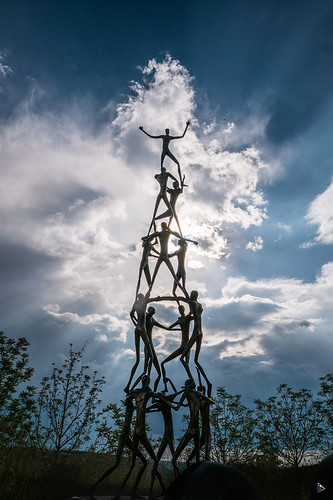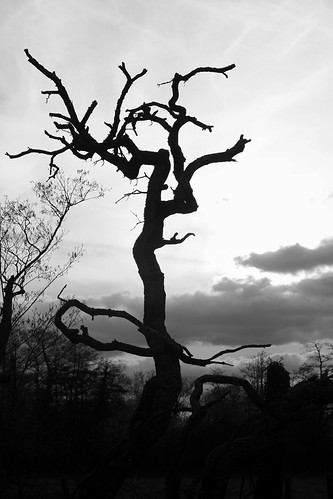
This is about technology and society – which is really about society these days. Bear with me.
The universe we know is full of systems, we as a society increasingly understand them. There are rules to them – real rules – that we’ve begun exploring through science. That’s all very exciting, but society isn’t good at listening to scientists. What we are good at is making our own systems, and we expect them to be followed as if there is some natural order to things.

Born here?
That’s how we define you.
Look a certain way? That’s how we define you.
Believe in some form of deity, or not?
That’s how we define you.
And so on, and so on.
We end up shadowy figures of the biases of others. In an increasingly digital world, where our data is analyzed, our shadows become more blurry yet that blur also defines us as it fits certain fuzzy categories we don’t know about.
This all worked out really well when everyone was born in the same place, looked a certain way and believed in some form of deity, among many other things. Anyone not like was from somewhere else, and was not to be trusted. The concept of immigration was a matter seen as invasion, more or less. Some people still think this way. That’s not the topic at hand. And no, it’s not about branding the systems as bad, either.
They are what they are.
The question is whether they should be what they are now.
That’s what people are largely upset about right now.
It’s largely what they will be upset about in the future.

These systems were seen as necessary at the time. I wasn’t there at the time, and it’s highly unlikely you were there at the time.
We learn about what was wrong with the systems and we have opinions, largely because how we view the world changes.
We disagree with many of the systems now – some more than others. Largely, though, we are victims of what our forebears thought was possible.
Change comes from tossing at least a part of this framework of possibility aside in a haphazard sort of way, plodding toward what we believe is progress – what we hope is progress – but we don’t really know. We like to think we know because it makes us feel grounded, like we somehow matter. Maybe we do. Is it so horrible if we didn’t? Human nature says, “Yes”.
The world is accelerating now in profound ways. Networks pump information, if we drill down into them we find the rhythms to be of a very human nature. When people wake up. When people get off work. It’s all a framework of our own creation.
It’s a framework built so that we can break out of the old frameworks – not purposefully, but it ended up that way. The truth is that no one really had an idea. There were some hopes.
There were also a few who thought it all a novelty. There still are.
Subtly, across generations, we have come a long way – and technology is now driving us to go further. At a societal level, people aspire to be driven by technology.
Who drives the technology?
The people who make the frameworks that people use.
What drives them? Are they trying to make the world a better place?
Who are they trying to make the world a better place for?
Who stymies the technology? The people who make the frameworks that people have used and have begun to feel trapped by.
And all the while, everyone is coloring in lines that someone else drew because society doesn’t like change to happen too fast.
And so, slowly, we build new systems in this evolving mechanism we call society.
We are society.
 Systems upon conception start off trying to solve one problem. Slowly they grow, being twisted with as the solution to the problem is better understood… and as more problems are added.
Systems upon conception start off trying to solve one problem. Slowly they grow, being twisted with as the solution to the problem is better understood… and as more problems are added.


